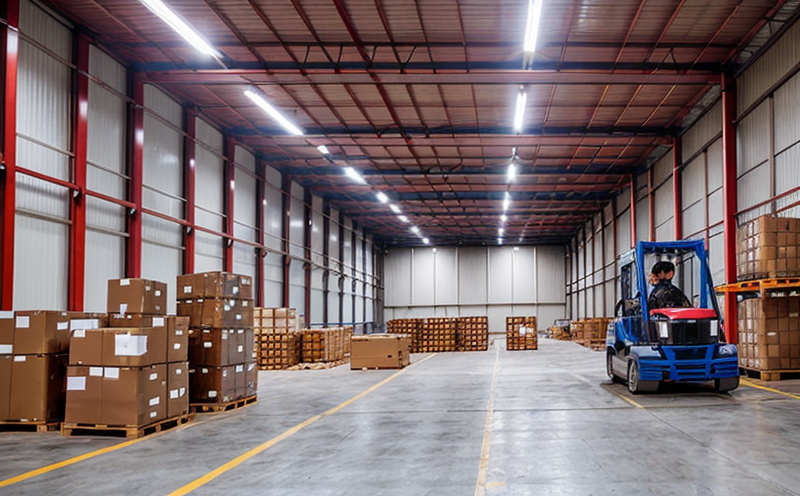ISO 2878 Package Vibration Resistance Testing
The ISO 2878 standard is a cornerstone in the field of packaging vibration resistance testing, providing comprehensive guidelines for evaluating how well packages can withstand vibration during transportation and handling. This service ensures that products are protected from damage due to mechanical stresses experienced during logistics processes.
Vibration can have significant impacts on product integrity, especially when dealing with fragile materials like electronics or pharmaceuticals. By simulating real-world conditions, ISO 2878 tests help manufacturers design robust packaging solutions that meet industry standards and customer expectations.
The testing process involves placing the package under controlled vibration conditions to determine its resilience. The equipment used in these tests includes shakers capable of generating precise frequency ranges relevant to typical transport scenarios. Post-test analysis focuses on identifying any changes or failures within the packaging material which could indicate vulnerability points.
Compliance with ISO 2878 is crucial for businesses operating globally since it aligns them with international best practices regarding package durability testing. Adhering to this standard not only enhances product protection but also contributes positively towards reducing waste by minimizing returns and rejections at destination locations.
This service plays a vital role in ensuring that packaged goods remain undamaged throughout their journey from manufacturing plants to retail outlets or end consumers. It helps companies maintain high levels of customer satisfaction while simultaneously improving operational efficiency through informed decision-making based on scientifically validated test results.
Eurolab Advantages
EuroLab offers unparalleled expertise in ISO 2878 Package Vibration Resistance Testing services, leveraging our state-of-the-art facilities and experienced team of professionals to deliver accurate, reliable test results. Here are some key reasons why choosing EuroLab for your testing needs makes sense:
- Accurate & Reliable Results: Our laboratories employ cutting-edge equipment and follow strict protocols ensuring precise measurements.
- International Standards Compliance: With extensive experience in adhering to global standards like ISO 2878, we ensure that all tests meet the highest quality benchmarks.
- Industry Knowledge: Our team comprises experts with deep knowledge of various sectors including manufacturing and logistics, providing tailored solutions for different types of packaging.
- Prompt Turnaround Times: We understand how critical timely delivery is in business operations, hence offering quick turnaround times without compromising on accuracy or thoroughness.
- Comprehensive Reporting: Beyond just passing/failing results, we provide detailed reports highlighting areas where improvements can be made to enhance package performance further.
Customer Impact and Satisfaction
The impact of ISO 2878 Package Vibration Resistance Testing extends beyond mere compliance; it directly translates into enhanced customer satisfaction by ensuring product integrity during transportation. When packages fail to protect contents adequately, there are direct consequences such as increased shipping costs due to damaged goods, higher return rates, and potential reputational damage for brands.
- Reduced Damage Costs: By identifying weak points early on through rigorous testing, companies can significantly reduce expenses associated with handling broken items upon arrival at destinations.
- Improved Reputation: Satisfied customers are more likely to become repeat buyers or recommend services/products to others. Ensuring packages meet robust standards reflects positively on a company’s reputation and commitment to quality.
Environmental and Sustainability Contributions
Incorporating ISO 2878 Package Vibration Resistance Testing into your business practices contributes positively towards environmental sustainability efforts. By preventing unnecessary returns and rejections, companies can reduce the amount of waste generated from packaging materials that might otherwise end up in landfills.
Moreover, adhering to these standards encourages manufacturers to innovate within design parameters aimed at minimizing resource consumption while maintaining structural integrity during transit. This approach promotes circular economy principles by fostering reuse and recycling practices among stakeholders involved in the supply chain.





